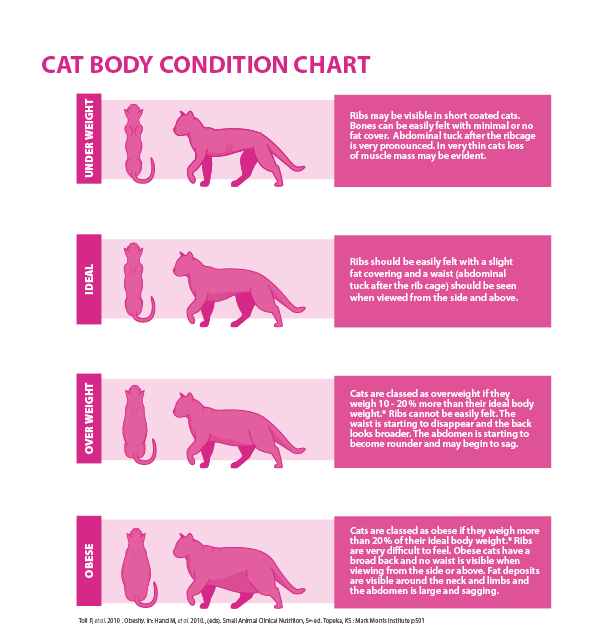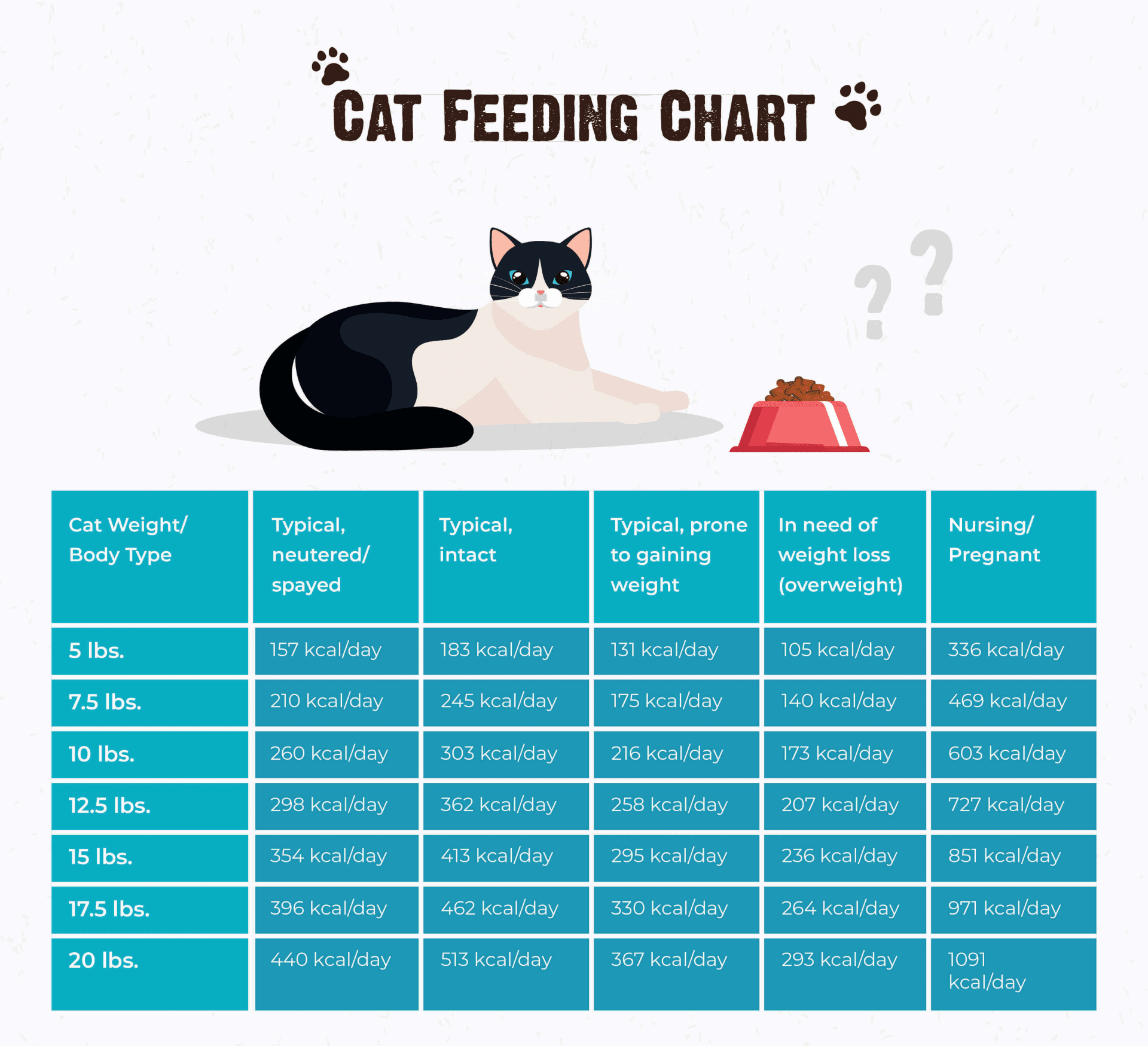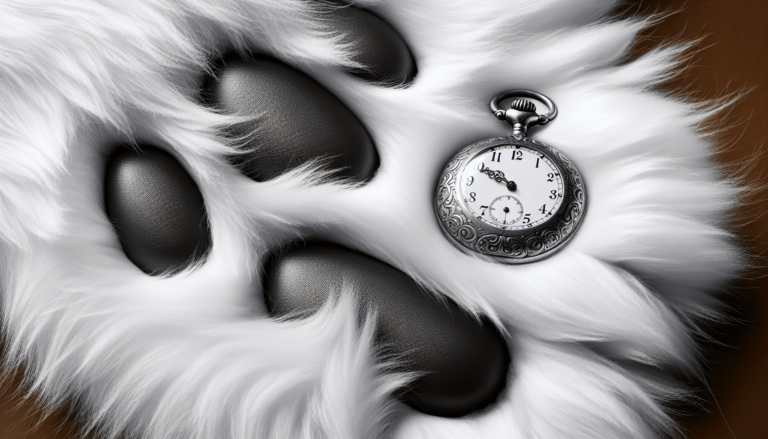How Often Should I Feed My Cat
Welcome to the feline feeding dilemma! As a cat owner, you may find yourself wondering how often you should be feeding your feline friend. It’s important to ensure your cat is getting the proper nutrition and portion sizes to stay healthy and happy. In this article, we will explore the factors that influence how often you should feed your cat, as well as some guidelines to help you create a feeding schedule that works best for both you and your furry companion. So sit back, relax, and let’s dive into the world of cat nutrition together! How Often Should I Feed My Cat
Have you ever found yourself wondering how often you should feed your feline friend? With so many conflicting opinions out there, it can be challenging to know what’s best for your beloved pet. In this article, you’ll find all the information you need to ensure your cat is getting the right amount of food to stay healthy and happy.
Establishing a Feeding Schedule
Setting up a feeding schedule for your cat is crucial to maintain their health and weight. Cats are creatures of habit, and they thrive on routine. By establishing a consistent feeding schedule, you’re not only providing structure for your pet but also helping to prevent obesity and other health issues.
Start with Meals Twice a Day
To ensure your cat is getting the nutrition they need, it’s recommended to feed them at least twice a day. By dividing their daily food intake into two meals, you’re helping to regulate their blood sugar levels and prevent overeating. Most cat owners find success by feeding their furry friend once in the morning and once in the evening.
Consider Your Cat’s Age
The age of your cat can also play a significant role in determining how often they should be fed.
-
Kittens: If you have a kitten, they may need to be fed more frequently due to their smaller stomach capacity and fast metabolism. A good rule of thumb is to feed a kitten 3-4 times a day until they reach around six months of age.
-
Adult Cats: Adult cats can thrive on two meals a day. However, if your cat has specific dietary needs or health concerns, your veterinarian may recommend a different feeding schedule.
-
Senior Cats: As cats age, their metabolism slows down, making them more prone to weight gain and other health issues. Senior cats may benefit from smaller, more frequent meals to maintain their energy levels and overall health.
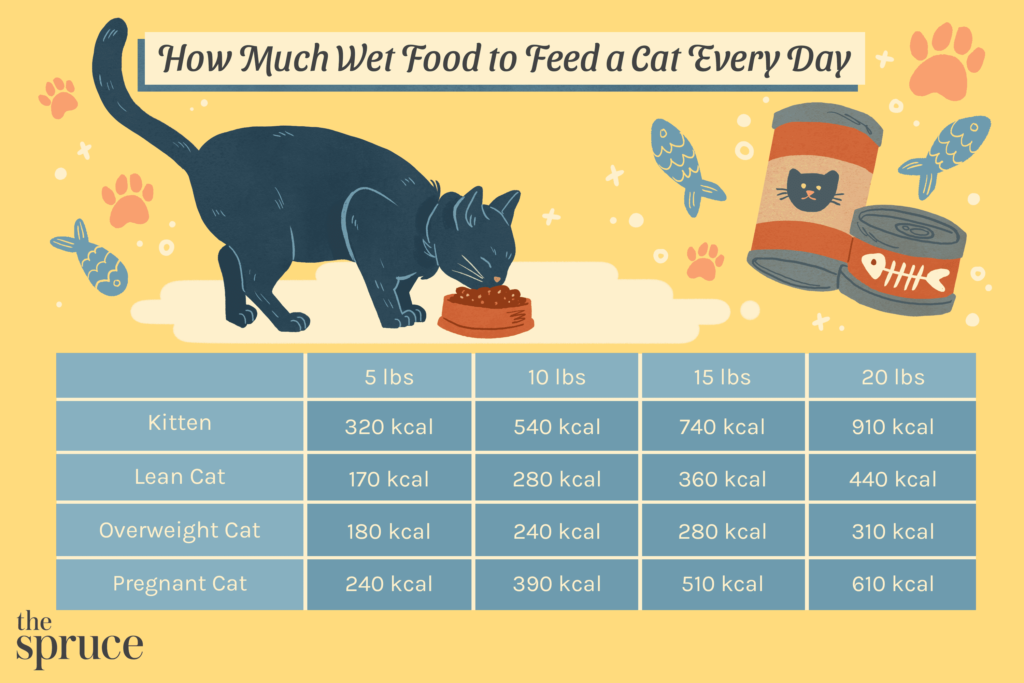
Understanding Your Cat’s Dietary Needs
In addition to establishing a feeding schedule, it’s essential to understand your cat’s specific dietary needs.
The Importance of Quality Cat Food
Choosing the right cat food is crucial to your pet’s overall health and wellbeing. Opt for high-quality cat food that is specifically formulated for your cat’s age, size, and any specific health concerns they may have. Avoid cheap cat food that is filled with fillers and artificial ingredients, as these can lead to nutritional deficiencies and health problems in the long run.
Wet vs. Dry Food
When it comes to cat food, there are two main options: wet and dry. Both types of food have their pros and cons, so it’s essential to consider your cat’s preferences and dietary needs.
-
Wet Food: Wet cat food is an excellent choice for cats who need more hydration in their diet. It is also more palatable for picky eaters and can help reduce the risk of urinary tract issues. However, wet food can be more expensive and may not be as convenient as dry food.
-
Dry Food: Dry cat food is more convenient and budget-friendly than wet food. It is also better for your cat’s dental health, as the crunchy texture helps to reduce plaque and tartar buildup. However, dry food may not provide enough hydration for cats who are prone to urinary issues and can be less appealing to finicky eaters.
The Role of Treats
While treats can be a fun way to bond with your cat and reward them for good behavior, it’s essential to use them in moderation. Treats should not make up more than 10% of your cat’s daily caloric intake to prevent weight gain and nutritional imbalances. Opt for high-quality, low-calorie treats that are specifically formulated for cats.
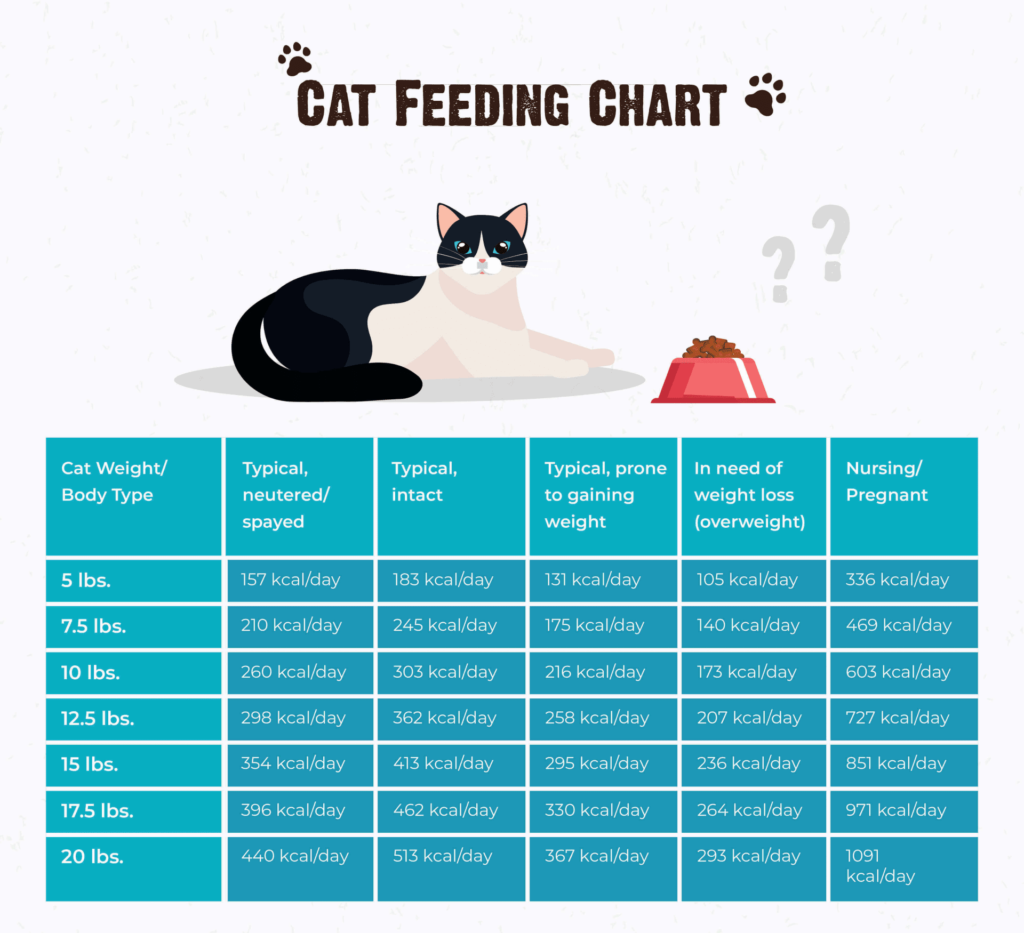
Signs Your Cat Isn’t Getting Enough Food
As a responsible cat owner, it’s crucial to monitor your cat’s eating habits and weight to ensure they are getting enough food. Here are some signs that your cat may not be getting enough to eat:
-
Weight loss or gain: Sudden changes in your cat’s weight could indicate that they are not getting enough food or are overeating.
-
Increased begging: If your cat is constantly begging for food or stealing food from other pets, they may be hungry.
-
Lethargy: A lack of energy or interest in play could be a sign that your cat isn’t getting enough nutrition.
-
Gulping food: If your cat eats their food too quickly or appears ravenous, they may not be getting enough to eat.
If you notice any of these signs, it’s essential to consult your veterinarian to rule out any underlying health issues and adjust your cat’s feeding schedule accordingly.
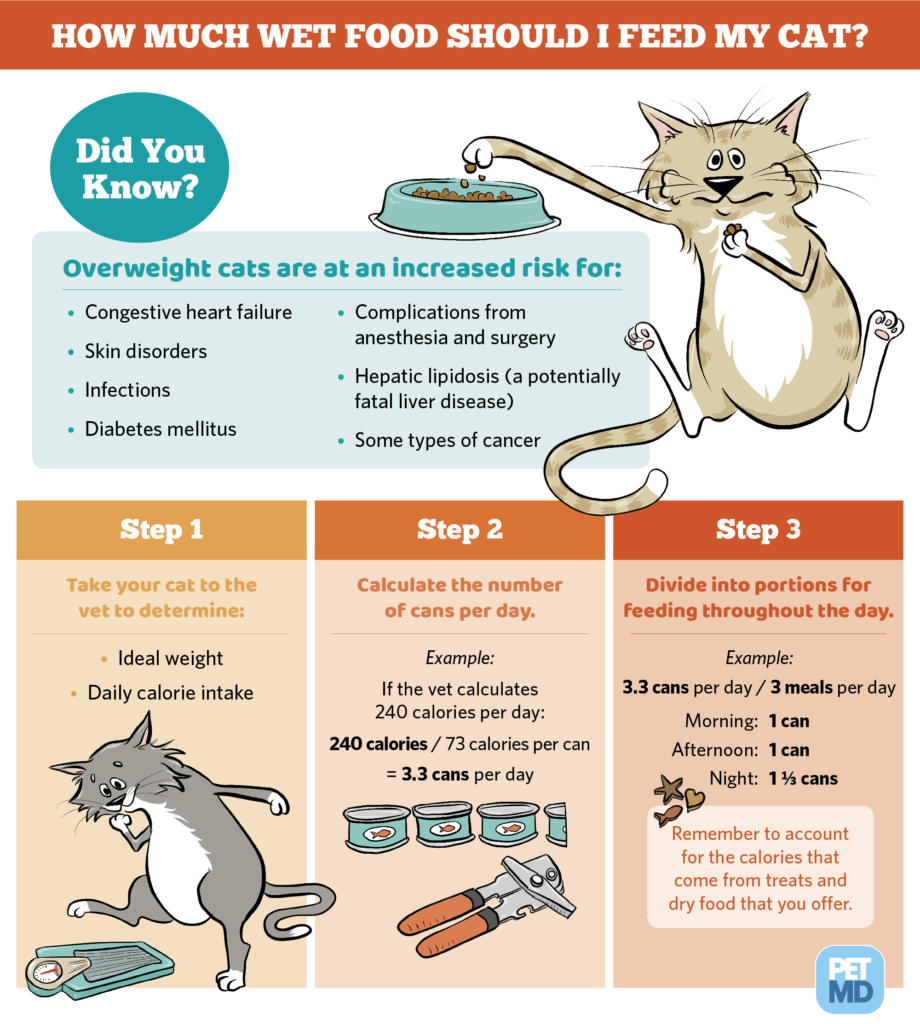
Tips for Feeding Multiple Cats
If you have more than one cat at home, feeding time can be a bit more challenging. Here are some tips to ensure that all your feline friends are getting the nutrition they need:
Separate Feeding Areas
To prevent food aggression and ensure that each cat is getting their fair share of food, it’s essential to set up separate feeding areas for each cat. This will help reduce stress during mealtime and prevent conflicts between your pets.
Monitor Portion Sizes
Each cat has different dietary needs based on their age, size, and activity level. To prevent overfeeding or underfeeding, it’s crucial to monitor portion sizes for each cat individually. Your veterinarian can help you determine the right amount of food for each of your furry friends.
Consider Feeding Stations
If you have cats with specific dietary needs or meal preferences, consider setting up feeding stations with different types of food. This will allow each cat to eat at their own pace and prevent food theft or aggression during mealtime.
Rotate Feeding Times
To prevent one cat from dominating the feeding area or stealing food from other pets, consider rotating feeding times for each cat. This will help ensure that all your feline friends are getting the nutrition they need without any conflicts.
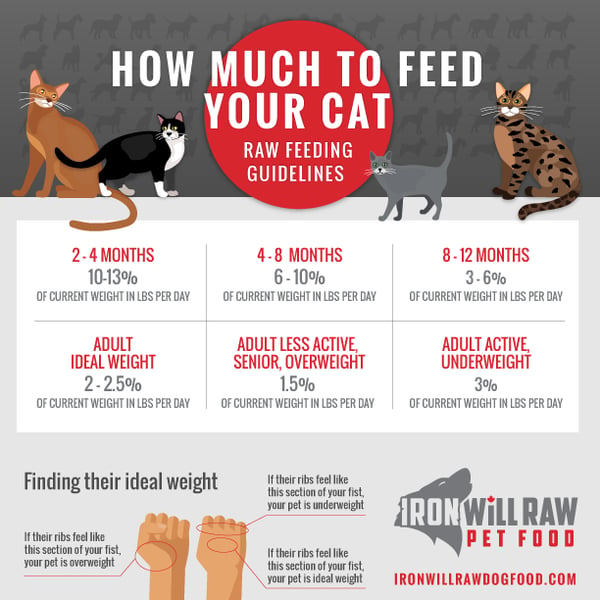
Conclusion
Feeding your cat the right amount of food is essential for their health and wellbeing. By establishing a feeding schedule, understanding your cat’s dietary needs, and monitoring their eating habits, you can ensure that your furry friend is getting the nutrition they need to live a long and healthy life. Remember to consult your veterinarian if you have any concerns about your cat’s diet or feeding schedule. Your cat will thank you with purrs and cuddles for providing them with the best care possible.
